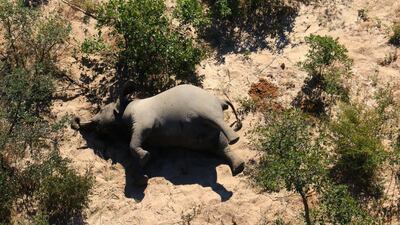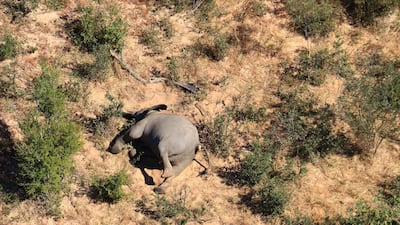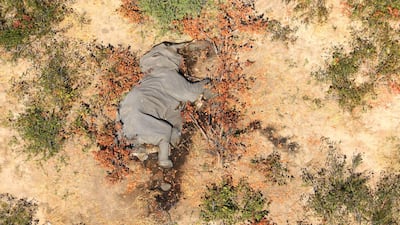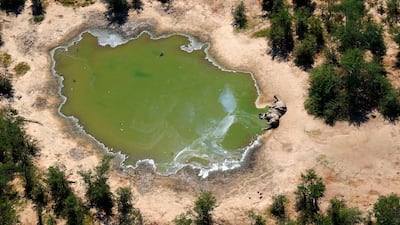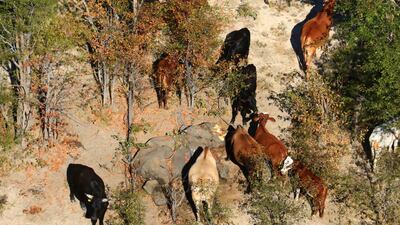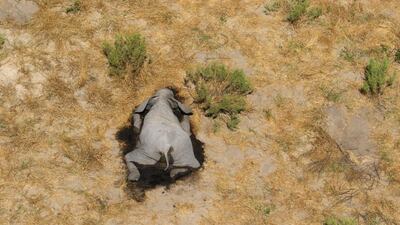The president of Botswana must investigate much more closely the unexplained deaths of at least 356 elephants in the country’s Okavango region, activists and experts have demanded.
In a letter to President Mokgweetsi Masisi two conservation groups, City's Fighting for Elephants & Rhinos and Botswana for Elephants, raised concerns that the elephant death toll could be significantly higher than currently reported.
“We are as yet not aware of a comprehensive survey to estimate the total numbers of elephants that have died,” the organisations wrote.
“We are also concerned that there seems to have been a lack of dedicated effort to determine the cause of deaths of these elephants. Unless this important information is gathered and made public, more elephants could succumb.”
The letter has since been signed by an array of groups around the world focused on protecting elephants.
“Botswana has long enjoyed the reputation of a prime destination for wildlife tourists and the government has invested considerable sums in citizen empowerment schemes to promote employment in this important GDP sector,” the letter stated.
“Botswana surely has the means and the ability to determine the cause of these elephant mortalities. The Botswana National Veterinary Laboratory, located just outside Gaborone, is a leading regional research institution and has established connections across the SADC region and indeed with leading Western veterinary research institutions.
“We would therefore appeal to you, Mr President, to take a personal interest in this very important matter of world conservation concern and ensure that these elephant deaths are investigated fully, transparently and with the best scientists available in Botswana and their collaborators abroad,” it added.
Niall McCann, the director and founder of National Park Rescue, has described the death toll as “staggering” and said it needs to be investigated immediately.
He told Cape Talk Radio that normally it is easy to identify how elephants have died.
“But at the moment, we just don’t know and for a fact that this has been happening the last six weeks or so and we still have no answers, That’s very concerning to me and I really hope that, now that the samples have started to make their way into some labs, we can find out what’s happening.
“Is it a pathogen? Is it a poison? Or is it a natural toxin?”
None of the elephants had shown any signs of wounds and instead appeared to have suffered from “neuronal impairment", Mr McCann pointed out.
“Those that are dying are often dying very quickly, falling flat on their faces as if suddenly they've collapsed."
